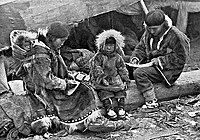
Show me the … family: How photos of meaningful relationships reduce unethical behavior at work
Sign Up to like & getrecommendations! Published in 2020 at "Organizational Behavior and Human Decision Processes"
DOI: 10.1016/j.obhdp.2020.04.007
Abstract: Abstract Environmental cues in the workplace influence unethical behavior, but the effects of these cues are less well understood than the effects of individual differences and social aspects of situations on unethical behavior. In this… read more here.
Keywords: work; unethical behavior; show family; photos close ... See more keywords

Social discounting and distance perceptions in costly altruism
Sign Up to like & getrecommendations! Published in 2017 at "Nature Human Behaviour"
DOI: 10.1038/s41562-017-0100
Abstract: Extraordinary acts of altruism towards strangers represent puzzling phenomena not easily explained by dominant biological models of altruism, such as kin selection and reciprocity1–3. These theories stipulate that genetically or socially close others should be… read more here.
Keywords: costly altruism; social discounting; discounting; discounting distance ... See more keywords

"You're supporting the whole person": A grounded theory study of quality support according to close others of people with neurological disability.
Sign Up to like & getrecommendations! Published in 2022 at "Neuropsychological rehabilitation"
DOI: 10.1080/09602011.2022.2153149
Abstract: PURPOSE Close others of people with acquired neurological disability often play a key role in supporting their relative to get necessary support, and therefore have valuable insight into what facilitates quality support. Situated within a… read more here.
Keywords: neurological disability; close others; support; quality support ... See more keywords

What’s good for me depends on what I see in you: Intimacy avoidance and resources derived from close others
Sign Up to like & getrecommendations! Published in 2017 at "Self and Identity"
DOI: 10.1080/15298868.2017.1291447
Abstract: Abstract Past research has demonstrated that comfort with intimacy differentially affects the extent to which a person assimilates/contrasts to a close other. Specifically, individuals comfortable with intimacy benefit most from assimilating to those who embody… read more here.
Keywords: avoidant individuals; high avoidant; good depends; see intimacy ... See more keywords

Managing the death of close others: Evidence of higher valuing of ingroup identity in young adults who have experienced the death of a close other
Sign Up to like & getrecommendations! Published in 2017 at "Self and Identity"
DOI: 10.1080/15298868.2017.1294106
Abstract: Abstract The death of a close other (DOCO) is perhaps the most difficult experience that people endure. According to terror management theory (TMT), people manage the potentially terrorizing awareness of their mortality by immersing in… read more here.
Keywords: death; others evidence; death close; managing death ... See more keywords

Listening to strangers more than friends: how recommendations from close- (vs distant-) others influence consumption
Sign Up to like & getrecommendations! Published in 2023 at "European Journal of Marketing"
DOI: 10.1108/ejm-11-2021-0841
Abstract: Purpose This paper aims to investigate how recommendations from close- versus distant-others influence consumer preferences. This paper explores how the consumption setting (public vs private) differentially affects the relative weight given to recommendations from these… read more here.
Keywords: consumption; others influence; recommendations close; close others ... See more keywords

Seeing you in me: Preliminary evidence for perceptual overlap between self and close others
Sign Up to like & getrecommendations! Published in 2019 at "Journal of Social and Personal Relationships"
DOI: 10.1177/0265407518788702
Abstract: Inclusion of other in the self, a key principle of the self-expansion model, suggests that close others overlap with the self in terms of resources, perspectives, and identities. Research from behavioral, cognitive, and neural domains… read more here.
Keywords: inclusion; image; overlap self; study ... See more keywords